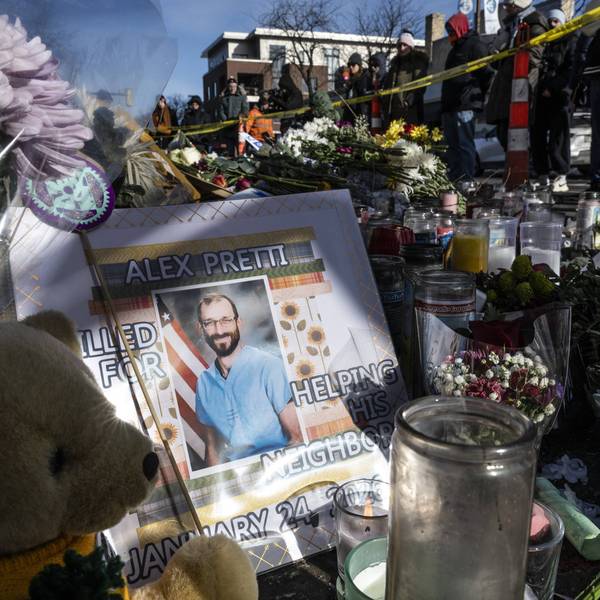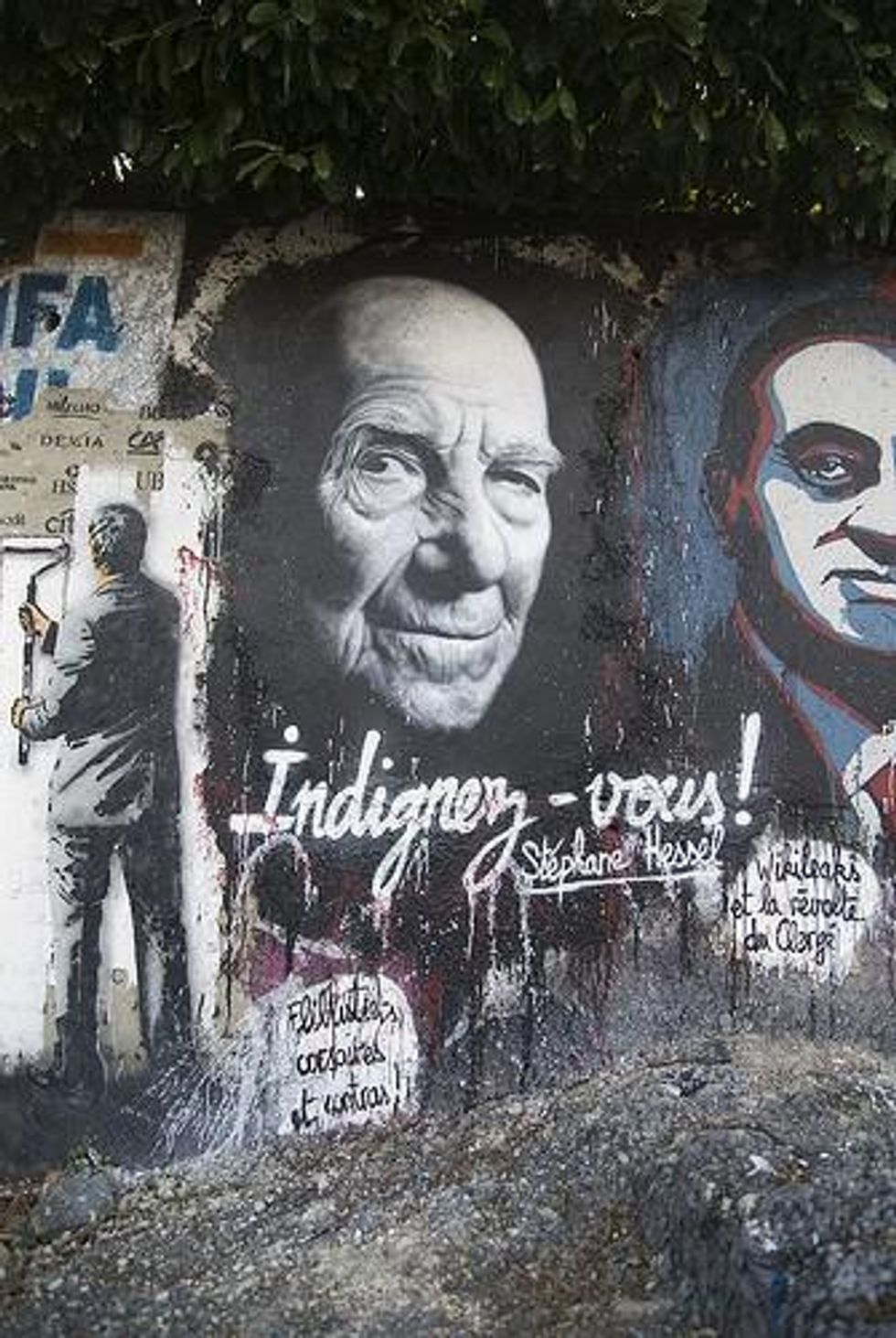"To you who will create the twenty-first century, we say, from the bottom of our hearts, to create is to resist. To resist is to create." --Stephane Hessel, Indignez-Vous! (Time for Outrage)
Stephane Hessel, inspiration for the Spanish indignados movement, later paralleled with Occupy Wall Street, died in Paris on Tuesday night. He was 95.
Hessel, Democracy Now! explained
occupied many positions in his life: immigrant, French Resistance fighter, concentration camp survivor, diplomat, advocate and author. He joined the French Resistance during World War II, was caught by the Gestapo and sent to the Buchenwald concentration camp. He escaped during transfer to Bergen-Belsen and later helped draft the United Nations Universal Declaration of Human Rights, then became an honorary "Ambassador of France," appointed to special government missions. He has since been a fierce advocate of the Palestinians.
But Hessel, Kim Willsher writes in an obituary in the Guardian, achieved
his worldwide celebrity at the age of 93, when a political pamphlet he wrote became a bestselling publishing sensation and inspired global protest and the Occupy Wall Street movement.
Millions of copies of his pamphlet Time for Outrage have been sold worldwide.
Introducing Hessel at a talk in September 2011 at Columbia University, The Nation's Katrina vanden Heuvel called his "a voice of humanity and conscience in a time when such values are so dangerously imperiled."
In a 2011 interview wth
Democracy Now!, Juan Gonzalez asked Hessel about his inspiration for
Time for Outrage, and he responded:
When I first asked an editor, Indigene Editions of Montpellier, to publish a little pamphlet, a little appeal, I thought it would hark back to the French Resistance, and that the movement of the French Resistance brought up some basic values, which they considered fundamental and they wanted General de Gaulle to apply when the war would be over. These values are still eminently the basic values. I found them carried forward by an American president for whom I have the greatest admiration and respect, Franklin Roosevelt. He was the one who allowed the Charter of the United Nations to come up. And I'm still working, 66 years later, to try to make those values felt by the younger generation. That is why in this small book--not very expensive, easily distributed all around--we try to say, these are the values on which, if they are violated, you must protest. You must find the time for outrage when these values are not respected.
Lauding the efforts of Occupy Wall Street, Hessel later added:
I think we have had the possibility of living in democracies. What does it mean? It means places where the privileged are not the one to make the decisions, but that the underprivileged are going to rise to a status where they are normal human beings and human citizens with their freedoms and their rights. When that is no longer the case, whatever the circumstance--in France, with President Sarkozy, definitely; in Spain, perhaps, after many attempts--then it is proper for the young generation to listen to the very old ones who tell them, "We have been resisters at a time where there was fascism or Stalinism. You must find the things that you will not accept, that will outrage you. And these things, you must be able to fight against nonviolently, peacefully, but determinedly." That is why I am so happy about what happens these days in Wall Street, because they're indeed very peaceful. They are not throwing any bombs or any stones, but they're there determined to see that their values are to be respected.
Agnes Poirier writes of Hessel's death:
Europe has lost a great European - and France a much-loved child, poet and, above all, a combatant for justice and freedom.
* * *
Note: The Nation was the first to publish Indignez-Vous! in the U.S.. Read it here.
____________________________




